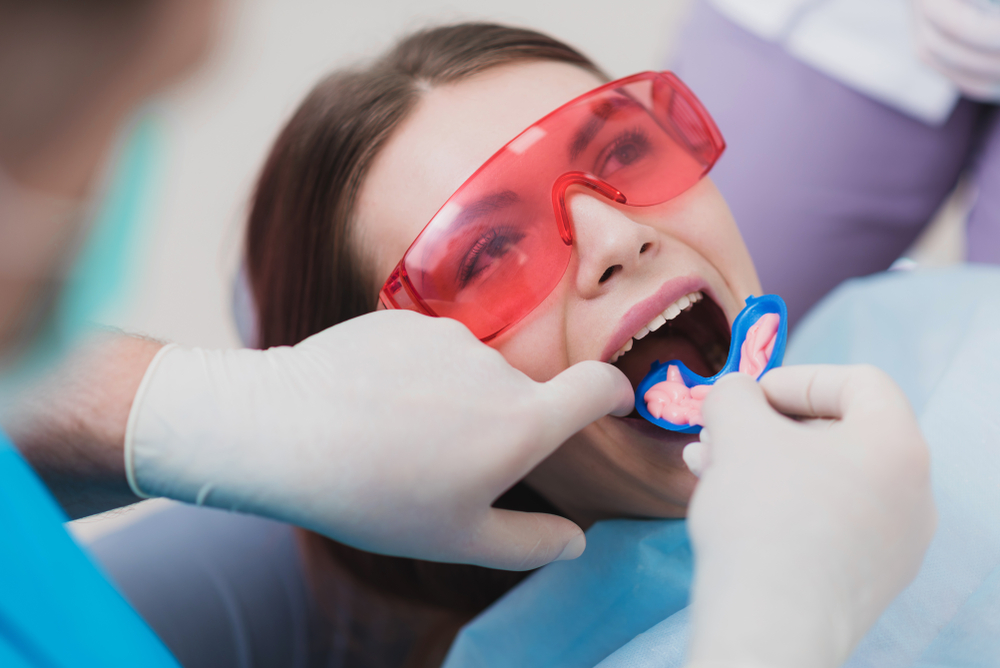Fluoride treatment is an integral part of oral health as fluoride is one of the three key ingredients (fluoride, calcium, and phosphate) to strengthen and rebuild enamel through mineralization on the teeth.
Plaque created by bacteria and sugars on sitting on the teeth breaks down the enamel on teeth to the point that the natural enamel building blocks cannot keep up with the damage. By providing fluoride treatments in Keller, TX, Pickett Family Dental can protect against plaque caused by bacteria and sugars and even rebuild the enamel that you have lost over time.

Fluoride Treatment Questions from Our Keller, TX Dental Patients
We get many questions about fluoride treatments from our patients at Pickett Family Dental in Keller, TX. We try to provide as much information as possible and have put together a list of the top 3 questions that our patients ask us about fluoride.
Where Can I Get The Fluoride My Teeth Need?
Typically, city water in Keller, TX as well as most areas has been treated with additional fluoride in the water. Fluoride is also commonly found in food. Most toothpastes (those recommended by dentists) contain fluoride to assist in protecting the tooth enamel and preventing further damage. Many mouth rinses also contain fluoride with some being only available by doctor’s prescription depending up the strength.
At Pickett Family Dental, we can apply fluoride to the teeth via gel, foam, or varnish. Our fluoride treatments are much stronger and make a better impact on your oral health.
Who Needs Fluoride the Most? Am I at Risk?
Many people are at an increased risk of tooth decay and may benefit from additional fluoride treatment. Those that would best benefit from fluoride treatments in Keller, TX would be those with:
- Dry mouth conditions: Dry mouth is most commonly cause by sleep apnea, allergies, antihistamines, antianxiety medications, high blood pressure medication, and people that just don’t produce enough saliva. This can cause it to be more difficult to remove acids from the teeth that speed up tooth decay.
- Gum disease : Periodontitis, also known as gum disease is the exposure of teeth the tooth roots to bacteria that cause decay, bad smells, and further oral health concerns.
- Recurring cavities: If you have one cavity every year or every other year, you might benefit from additional fluoride.
- Presence of crowns and/or bridges or braces: These treatments can put teeth at risk for decay at the point where the crown meets the underlying tooth structure or around the brackets of orthodontic appliances.
Are There Risks Associated With Fluoride Use?
Fluoride in the appropriate and minimal amounts applied only to the teeth during brushing or at the dentist office is safe. Ingestion, especially in higher quantities can be hazard as it is toxic beyond a certain amount depending upon an individual’s weight. View the appropriate fluoride amounts on your toothbrush on one of our recent articles on fluoride use in toothpaste on toothbrushes.



